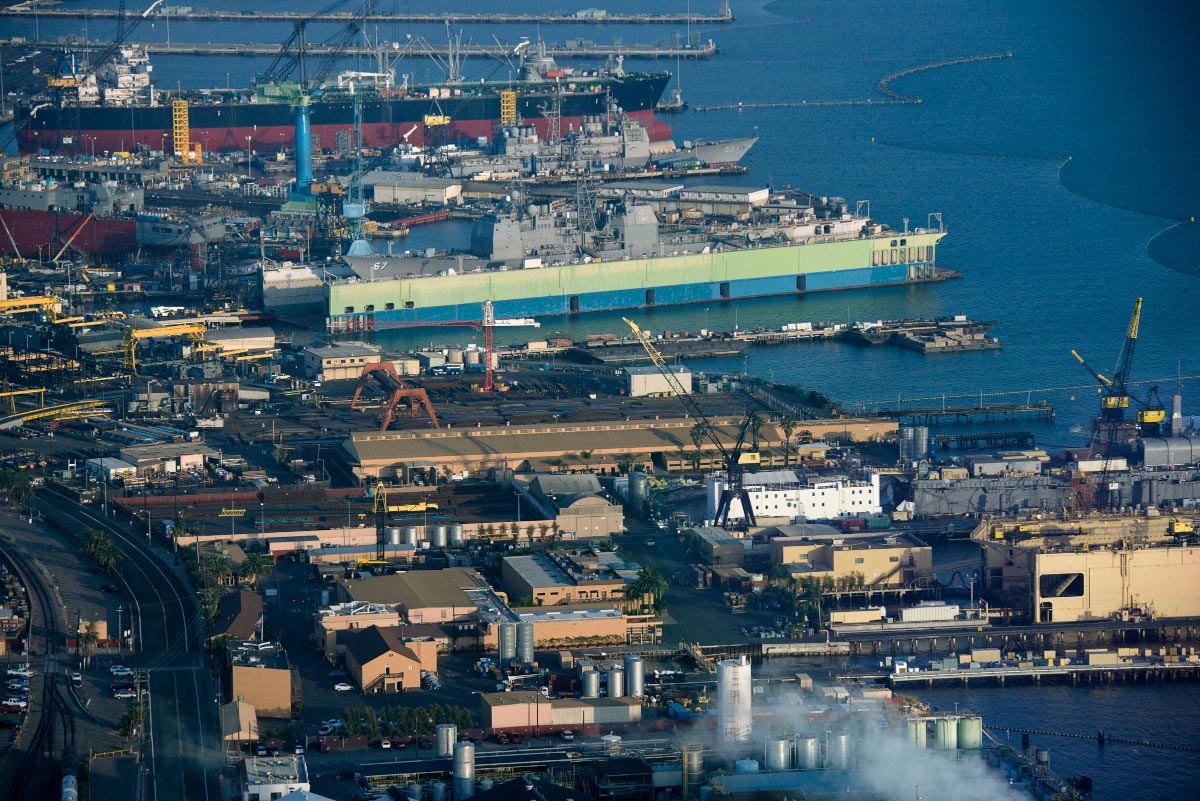
The International Monetary Fund (IMF) is predicting that the effects of the two-year-long global supply chain crisis will worsen again in April, as rising shipping costs threaten to slow economic growth and worsen inflation.
According to an article posted on the IMF's website on March 28, the organization outlined how the economic restrictions imposed upon the world during the early stages of the Wuhan coronavirus (COVID-19) pandemic caused an economic shock that "underscored just how crucial the maritime container trade is to the global economy."
"From Shanghai to Rotterdam to Los Angeles, the coronavirus upended supply chains," wrote the IMF. "Ports lacked workers who were home sick. Truck drivers and ship crews couldn't cross borders because of public health restrictions. Pent-up demand from huge stimulus programs during extended lockdowns overwhelmed the capacity of supply chains. Besides causing delays in getting goods to customers, the cost of getting them there surged."
The IMF conducted a study on shipping costs in 143 countries over the past 30 years and found that shipping costs "are an important driver of inflation around the world." When freight rates double, the IMF said inflation rises by an average of 0.7 percent.
More importantly, the effects of rising shipping costs can persist, peaking after a year and lasting as long as 18 months.
What this study suggests is that the inflation caused by shipping cost increases observed in 2021 could still affect inflation in 2022. The IMF predicted that it could increase inflation by as much as 1.5 percentage points this year.
Shipping costs have less effect on inflation than other factors like fuel and food prices, but the IMF noted that they are less likely to remain stable.
"As a result, the contribution in the variation of inflation due to global shipping price changes is quantitatively similar to the variation generated by shocks to global oil and food prices," wrote the IMF.
Resurgent coronavirus in China to affect inflation in 2022
When the pandemic first hit in early 2020 and all of the world's strongest economies decided to restrict all economic activity, this led to a shipping crunch. For the 18 months after March 2020, transportation costs surged and became seven times more expensive. This made shipping commodities in bulk across oceanic trade routes far too costly.
Last year, the shipping crisis hit American and Chinese trade routes the hardest. The economic restrictions implemented recently by Chinese authorities in the mistaken belief that it will combat a resurgent wave of COVID-19 are expected to have a reverberating effect on shipping costs.
In Shanghai, shipping company CMA CGM claimed that port terminals in the financial hub are still able to operate normally, but there are increasing reports of delayed trucking services to and from the city due to the restrictions.
Although American shipping rates across the Pacific Ocean to Asia went down in recent weeks after a seasonal dip, analysts have warned that they may go back to their pre-dip and possibly rise even higher as demand increases amid China's renewed struggle with the coronavirus. (Related: World braces for renewed supply chain crisis as COVID outbreaks shut down highly vaccinated China.)
Everyday goods in America to be affected by elevated shipping costs
According to Nicholas Sly, an economist working for the Federal Reserve Bank of Kansas City, it will take between 12 to 18 months before Americans will be forced to pay for the elevated shipping costs. This means that the shipping crisis could keep inflation high well into 2023, even if container prices start falling soon.
"The goods that are being affected by shipping costs today are really the goods that consumers and American households are going to be buying many months from now, and that's why those costs tend to show up later," said Sly.
The latest estimate from the Freightos Baltic Index, one of the global indexes tracking global container freight rates, showed that global shipping prices today are nearly $10,000 more expensive on average than in March 2020, before the lockdowns.
While current rates are down from the record-breaking highs seen in the fall of 2021, rates are still holding at extremely high levels and are unlikely to come down soon.
If the Chinese government insists that its lockdowns can resolve the current wave, it could lengthen the recovery of supply chains and throw the global economy into a new phase of disarray.
For more stories about the global supply chain crisis, visit SupplyChainWarning.com.
Listen to this episode of the "Health Ranger Report" podcast as Mike Adams, the Health Ranger, talks about how Americans must prepare for the possibility of experiencing extreme poverty as America's economic fairy tale implodes.
This video is from the Health Ranger Report channel on Brighteon.com.
More related stories:
Food shortages worse than Americans expect as omicron exacerbates supply chain crisis.
Omicron outbreaks, lockdowns continue to affect US supply chain, prices of goods.
American grocery store shelves growing increasingly bare as Biden supply chain crisis accelerates.
Shortage of semiconductors hits manufacturing industries as Biden fails to solve supply chain crisis.
Sources include:
Please contact us for more information.




















